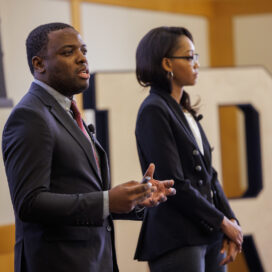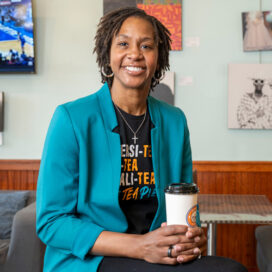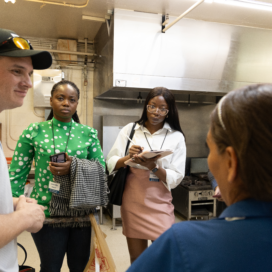The next level: A Q&A with Dean Martijn Cremers about his strategic vision for the Mendoza College of Business
Published: September 25, 2020 / Author: Carol Elliott
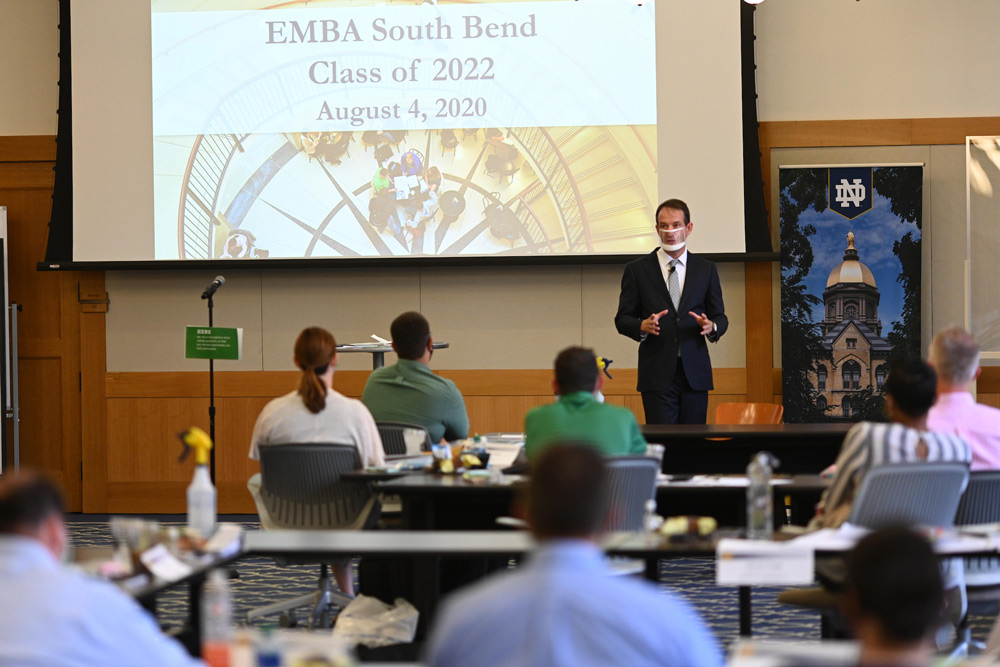
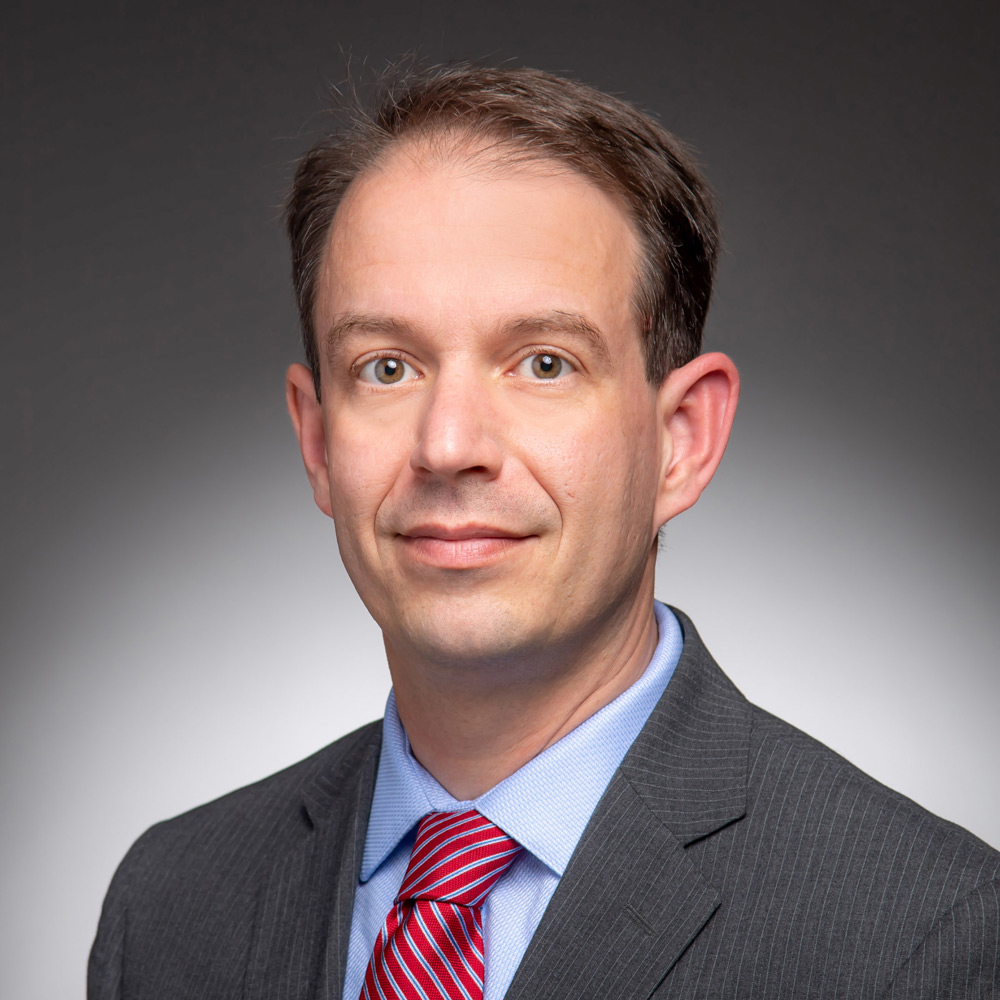
Martijn Cremers
In January 2020, Martijn Cremers was heading into the second half of his first academic year as the Martin J. Gillen Dean of the Mendoza College of Business. Cremers, who served as interim dean for a year before accepting the permanent position in 2019, had made good progress toward implementing key aspects of his strategic vision for Mendoza even in that short amount of time — expanding programs and opening undergraduate courses to non-business majors, creating a new organizational structure, renovating classrooms, developing a plan for a new building and rolling out a new brand narrative to “Grow the Good in Business” with a new marketing strategy offering key promises to the students, just to name a few items.
And then COVID hit, transforming life on a global scale. And as it was for so many, future plans of any sort seemed almost like a foolhardy notion.
What was it like to be a new leader responsible for decisions that potentially affected thousands of faculty, staff and student lives? In a recent livestream interview with Lou Nanni, vice president for University Relations, Cremers talks about meeting the challenges of the pandemic, some of the changes he’s been able to make and his vision for taking Mendoza to the next level.
Halfway through the second semester, COVID-19 hits and you have to adjust to remote education. The fall semester started in-person, went back to remote learning and then back to in-person. How have you been able to adapt?
I think the key is resilience and the willingness to be patient with each other, to be gracious and generous, but also to really step it up. It’s very important that people recognize we’re here for a purpose. We’re to work together, to help each other and to really serve our students. We owe it to our students to really bring our “A” game. It’s times like this that show that we are very much a strong community. I actually think that through the great adversity and the mistakes and the pivots and the changes and asking more and more of our faculty staff and students, we’ve become an even stronger community.
You carry a teaching load as well, and you teach a rather unconventional class. Could you say a little bit about the class and the meaning or the impact of teaching and being dean?
So I have to say I’m struggling a bit. It’s hard to do both. While I serve as dean, that is my number one priority. At the same time, I’m trying to maintain some research and to still teach a class every semester. I can’t do it by myself, so I found a terrific co-teacher, theology professor Craig Iffland, who is actually a much stronger teacher than I am. The two of us co-teach Corporate Governance & Catholic Social Teaching, which is a course that integrates business leadership with the Catholic social tradition.
We actually read six, seven encyclicals, front to back, with the students and then compare and contrast the message of the encyclicals, let’s say business for the common good, with two other perspectives on business — the shareholder perspective or the Wall Street view and the stakeholder perspective or the Main Street view. And then we ask students to compare and contrast those three different views. And the final end of the paper is where students are asked to write and address to the shareholders — I’m a finance professor after all — where they have to explain their vision of business. What is the purpose of business? How do you separate priorities in business? How would you characterize the best practice of business? I really enjoy teaching that course, mostly to finance majors but we recently also opened it up to other students.
You stepped into the deanship roughly two years ago as the interim dean. Mendoza was already regarded as one of the very best, if not best, undergraduate business colleges in the country. What is your vision to build on that excellence? What do you hope to do to take the College to the next heights?
I think the distinctive mission and vision that we have starts with the distinctive mission and vision of the University. The mission of Mendoza is to Grow the Good in Business. So my role as dean is to try to help our faculty, staff and students to do just that. My vision is one where we present an integrated curriculum in business — on the one hand, integrating the business disciplines like finance, accounting, marketing with the perspective on the human person, and on the other hand, integrating with big data analytics. And so you Grow the Good in Business through your skills and expertise in a particular business discipline, but always with a focus on the human person. That business is done by, with and for other people.
At the same time, right now the new language of business and the way significant business decisions are made are more and more dominated by what we learn from big data and analytics. At Notre Dame, we’re strong in each of those three areas — the business disciplines, the humanistic perspective informed by theology, and engineering analytics and data. What we haven’t done, and I think where we have really an opportunity, is to be much more integrative.
Which speaks to probably one of the greatest criticisms of higher education across the board is that it’s too siloed. Can you give us some examples of how you’ve opened up the Mendoza College of Business, and what are some examples of collaboration that you’re either engaged in or are in discussions about?
We started by making it easier for non-business majors — undergrads — to take business courses. So we just created additional seats. The next big thing we did is create business minors for business that are open for non-business majors. Over the last two years, we created four new ones in accountancy, digital marketing, real estate and innovation entrepreneurship. The last two are partnerships with other campus units—the Fitzgerald Institute of Real Estate and the IDEA Center.
These are all great initial wins. I think it’s good for the non-business students to take some business courses. But it’s also really an advantage for the business students themselves to have a more diverse group of people in the class, in both introductory classes but also very much in the electives. I think our business majors really benefit from learning from the other students with different perspectives.
What advice would you give to students, both business majors and non-business majors, of how they can best leverage the assets of the Mendoza College of Business?
Well, let’s start with what makes us distinctive, which is our mission to Grow the Good in Business and to have an integrated vision of business. The advice I would have for students is to regularly take some steps back and pray about and reflect on what growing the good in business means for you. What does it mean for what you’re interested in, for the field that you’ve chosen? What are the gifts that you have received? How can you develop those gifts to better serve God and others? And an integrative vision of business means that you can relate everything else that the University has to offer to business.
I would also like to encourage students to — many of them do this already — to consider a supplementary major, a second major or a minor outside the business school, because the whole human experience matters for business. Business is done by, with and for people. The other advice I would give is that we have incredible faculty and I think more of our students would benefit from getting to know them better. Our faculty really care about our students. So my advice to students would be, get to know them, go to the office hours, speak up more in class, talk to them before and after class.
You recently received a transformative gift toward the end of your first year as dean. Can you tell us a little bit about that gift and what impact you think that gift will have?
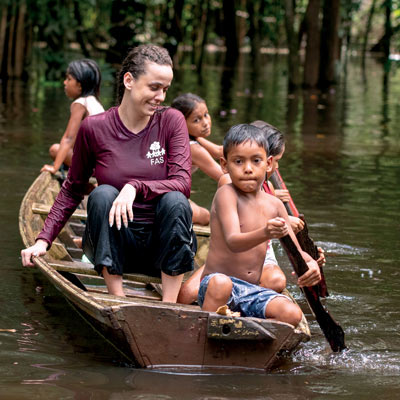
Children playing near Puna give a ride to Liane Lima, who works for Frontlines’ partner organization in the Amazon.
It was indeed an incredibly generous, transformative gift for our MBA program. It’s a gift by Kenneth and Susan Meyer to name the Business on the Frontlines program, which we’ve offered for the last 12 years or so to about 25 MBA students. Our students work in teams of five to serve as consultants to partner institutions all over the world, generally serving those with the greatest economic and social needs. The course is a business problem-solving course that is also very much focused on the formation of a servant heart.
Frontlines is an exceptional course started by Management & Organization professor Viva Bartkus. The key idea is to take this one course that serves 25 students a year, and make it central to the Notre Dame MBA. The Meyer gift has now allowed us to scale up to offer this Frontlines experience to all Notre Dame MBA students. We’re working hard to create different versions of Frontlines in addition to the main Frontlines course where students travel internationally on projects all over the world. We are excited to be piloting this semester a domestic version, Frontlines in America, where our students will work with partners in the United States. And then we’re working toward creating shorter term Frontlines engagements.
What might be some other thoughts that you have that would take the College to the next level?
I like to use three words to answer that question: How can we elevate? How can we better cooperate? And how can we better integrate? One thing that we’re very eager to do, and we’re currently working on a pilot, is to start a scholars and honors program to elevate our undergraduate business curriculum so that we serve our most academically gifted and academically ambitious students better. The scholars program part of that involves creating honors sections of existing courses as well as new honors courses with accelerated and advanced content. In effect, we will create a smaller cohort within our fairly large undergraduate business program so that the students within the cohort can get to know each other better and get to know the faculty better.
The honors part of that would be that some of the students write an honors thesis. We currently don’t have that at Mendoza. So this would be where students do their own research under supervision of faculty. And this would, I think, serve these students better. It also would prepare them better for very quantitative, analytical, more research focused jobs, but also potentially prepare them to pursue graduate school.
The other big thing that we’re working on is to integrate analytics into our curriculum. Our first big win was creating a new course, Fundamentals of Coding, which will be required for all business majors. So irrespective of your major, starting with the new first years, students will all be required to do the Fundamentals of Coding course. That will get all of our students at a certain basic level of understanding of data structure, of coding, of how to extract information from data. That will then allow us to then start integrating analytics and coding, in all of the subsequent courses that they take, because it’s a certain level playing field that you create among all of our students. And once we have that, I think there’s many, many different possibilities. How do you better integrate analytics in marketing, in digital marketing, in finance, in accountancy, etc.? I think that this new initiative of integrating analytics is very exciting and the course is progressing well. And we’re excited to start teaching this next spring.
This is a period of a very significant disruption on so many levels — the pandemic itself, all of the economic dislocation, the significant racial unrest across the country. But with the dislocation, perhaps business understands more than any other sector that there’s opportunity if you can see ahead. How are we preparing our students for a very challenging, sometimes volatile workplace, and also one that presents new trends and opportunities?
Very well said, and these are challenging times. I think they remind us of the tremendous responsibilities we have toward each other. So if you are in business and you make business decisions, it’s more important than ever to make sure that decisions you make actually benefit everyone else, especially those who don’t have a seat at the table, especially those who have the greatest needs. That is something that really fits our mission. I do think that because at Notre Dame we value community so much, we well prepare our students to be good team players. At the same time, we also have a lot more opportunity to do more there.
We aim to teach that business leaders have a responsibility toward ultimately all of society — the social impact and environmental impacts of business. Yes, you need to compete in business, but more importantly, you need to contribute and cooperate. How to teach all three of these ‘Cs’ — contribute to human flourishing, cooperate with all stakeholders in solidarity, compete in the marketplace effectively and efficiently — is a real challenge for a business school. As a business school, generally we teach our students to compete well. At Notre Dame, we very much also teach them how to cooperate well in teams, and I think we can do more in teaching social responsibility, thinking about how you really affect everyone in society at a more systemic level, where business has a major responsibility, too.

